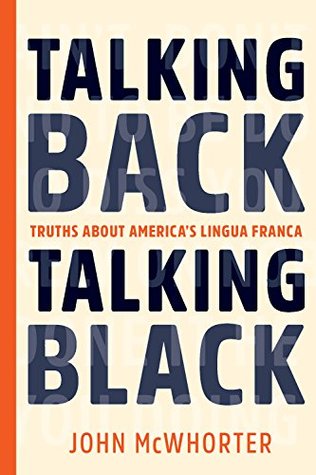More on this book
Kindle Notes & Highlights
THE LANGUAGE OF PRINT, school, and the media is French, but when speaking outside of formal settings, people use another form of speech: Haitian Creole. In Sicily, the language of print, school, and the media is standard Italian, but when speaking outside of formal settings, many people use another form of speech: Sicilian. In Switzerland, the language of print, school, and the media is High German, but for German speakers in that country, outside of formal settings they use something other than High German: Swiss German, which is quite different in sound, vocabulary, and structure from the
...more
Why would it be that in so many places, casual language is an alternative to the standard one, treated as perfectly normal,
the reason black kids have trouble in school is not Black English but the quality of the schools themselves, as well as the problems that life in disadvantaged communities can saddle students with. Yes,
Linguists talked of grammar. The public talked of slang and mistakes.
There are two main ways that various dialects of a language differ: the sound (or accent) and the sentence structure.
When someone says “He the one” instead of “He’s the one,” uses ain’t for didn’t as in “He ain’t told me,” or uses be in that
rich culture.
Black English is not bad grammar but alternate grammar.
speech of uneducated southern whites comes under a lot of fire, as well. The speech of Appalachian whites
“to criticize a dialect is to criticize its speakers.” He was right, and the room applauded. But it was a room full of linguists, education experts, and speech pathologists—part of that
Black English be presented largely as a dialect that leaves out this and reverses that,
Black English must be introduced via a collection of ways in which it is more complex than Standard English,
Up is a marker of intimacy, just as adding ed to a verb is a marker of past action.
Modern English chucked most of what made Old English complicated, in fact. It happened when the Vikings invaded England, learned Old English badly because as adults they picked it up imperfectly, and then passed their rendition on to the kids they conceived with English-speaking women.
Black English subtracts from Standard English, then, for the very same reason Modern English subtracts from Old English.
When humans move, or are moved, in large numbers and have to pick up a language quickly, typically their version of the language is more streamlined than the original one.
The status of community is determined as much by social identification as by location; your community is whom you are closest to socially and emotionally. Also, the way one speaks is primarily shaped by one’s peers
People truly comfortable with one another talk alike, especially after a while, and certainly after generations. We’re not there yet.
certain positionings of the tongue and lips, slightly different from the ones whites use, when producing certain sounds.
cannot stress more that there is no value judgment here.
Black English has different melodies,
Aspects of voice quality distinguish different languages and dialects worldwide. For example, formal British English is produced more forward
This so-called fry is a slightly creaky tone that people frequently use, often to single out a point as significant, toward the end of
In Black English, the particular random type of timbre in question is what creates the husky impression, although the study that identified this difference in black vocal quality
To speak full-blown Black English is to have the grammar, the sound, and the quality.
Black English is complex, even if the ways it differs from Standard English are in the uses of alternates rather than bastardizations, real-world factors must guide choices.
feigned comfort with strangers.
Race is certainly the reason Black English occasions so much more comment than rural southern English: it makes Black English seem more different, and more wrong.
Rather than saying “We need her to speak Black English instead,” we should say “We need her to speak Standard English, too.” In fact, she probably already
Americans, in that sense, don’t know that their typical native linguistic repertoire is narrow and dull compared to that of a great many of the world’s people.
Worldwide, people speak their respective languages in vastly different forms depending on social contexts—one way in that interview, another very different way when talking to a friend about it later.
The Normal Sense of Language: To Talk Differently Than You
The distance from Standard French is quite similar to that of Black English from Standard English, and, in fact, more.
people can speak both. There is a term for people whose casual and formal speech differs to this degree: diglossia,
linguistic existence a label implies that it is exotic, when in fact it is extremely common and even a norm.
They speak the written version; they talk the other version. As such, there is ample diglossia in many languages of South Asia, across Indonesia, and in Tibetan, Swahili, German, and Italian itself,
One is more likely to use a Black English word or construction in reference to something closer to the heart, funnier, or more central in importance while speaking largely in Standard English.
women tend to embrace the standard dialect more than men, regardless of race.
Sicilian speaks an alternate language from Tuscan Italian,
African slaves did not master English perfectly. One might affirm that the imperfect English they created can’t be dismissed as “bad” anymore than Modern English can be dismissed as “bad” because Vikings created it by massacring Old English.
issue is largely unreachable by logic.
spoken by people in the South, isolated from whites, and semiliterate,
emerged from a common tendency, especially among men, to use mockery and joshing as an expression of affection. There
“If we can’t use the slur, how come they can use the term of affection?”
dozens of starkly distinct regional dialects as it has in Great


